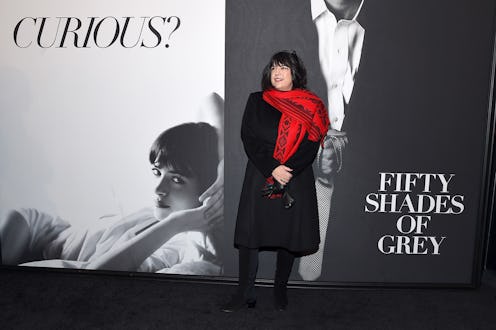Books
Fan Fiction Isn't What We Think
Fan fiction. It's a well-known phenomenon, and possibly more widespread than most people would imagine. In The New Statesman, Laurie Penny argued rather convincingly that the BBC's Sherlock series is essentially fan fiction. And as far as she's concerned, that's a good thing. Because why shouldn't stories leap off the page, lodge in new imaginations, and become something new?
No good reason I can think of. As Penny points out, "Myths can bend and change. Something new and exciting is happening in the world of storytelling, and fans are an important part of it." So if we are to all stop looking down on fanfic as Penny suggests, this might be a good time to take a good long look at what fan fiction actually is.
On the surface, the question seems simple. Fan fiction is what you find when you go to fanfiction.net and read all about Harry Potter's torrid affair with Draco Malfoy. And sure some of it might be good, even really good ("Harry Potter and the Methods Of Rationality" anyone?) but it's still just a bunch of weirdos on the Internet, right?
Well... no. For one thing, if you still actually think of Harry Potter when you think of fan fiction, you're way behind, but more importantly, fan fiction leaves the web all the time now. Say what you will about 50 Shades of Grey (or don't; we might all be tired of talking about it), but it started as Twilight fanfic and ended up almost single handedly launching the erotic romance genre into a serious publishing trend. It's also available in hardcover.
But for obvious reasons, it's still easy to sneer at E.L. James and her series, and to fit that into the existing, narrow definition of fan fiction. It's harder to sneer at Shakespeare. And yes, I said Shakespeare. Shakespeare wrote fan fiction. In fact he wrote a lot of it. Romeo and Juliet, Othello, Macbeth, Much Ado About Nothing — those were all taken from existing plays, novels, or folk stories. In fact, scholars are pretty certain that of Shakespeare's 38 plays, only two feature original plots: Midsummer Night's Dream and The Tempest. (Both of which arguably don't have plots at all). Everything else was fanfic. He took a story he liked and made it his own.
The truth about fan fiction is that it's a bit of a misnomer. It conjures up images of rabid, crazy-eyed teens so obsessed that they just have to have more even if they must write it themselves. A better term than "fan fiction" might be "inspired fiction" in the sense that it's a story inspired by another story. It's fiction rooted in other fiction. But often times, it can still stand on its own.
Look at the book (and movie) The Hours, which was inspired by Virginia Woolf's Mrs. Dalloway. Isn't it just meta-fanfic where the book that inspired the fan fiction is also part of the story? (We call these "restagings," yes, to shuffle them into another category.) It just happens to be very well done and rooted in a literary great, so no one bothered to notice.
Then there are shows like Once Upon a Time that put a new spin on fairy tales, or Sleepy Hollow and Dracula that grew out of classic novels. And then, of course, just look at Sherlock or Steven Moffat's other kinda-famous show Doctor Who, which continues the adventures of a character who'd long gone off the air before being revived. Don't tell me that isn't just fan fiction with a budget.
On a whole different level of fan fiction, one might even say that any book to movie adaptation is fan fiction — someone so loved this book they wanted to give it new life in a different medium. (I mean, Peter Jackson clearly can't let go of J.R.R. Tolkien). And on that note, this summer I saw Shakespeare's Macbeth as though set in Cold War Afghanistan. Was that fan fiction of fan fiction? Oh dear.
The point is that fan fiction is really just fiction that happens to have obviously grown out of something that came before it. But as millions upon millions of Sherlock watchers can attest, that certainly doesn't mean the re-imagined versions can't be just as good as the original. So It's about time we stopped looking down on it and embraced it.
